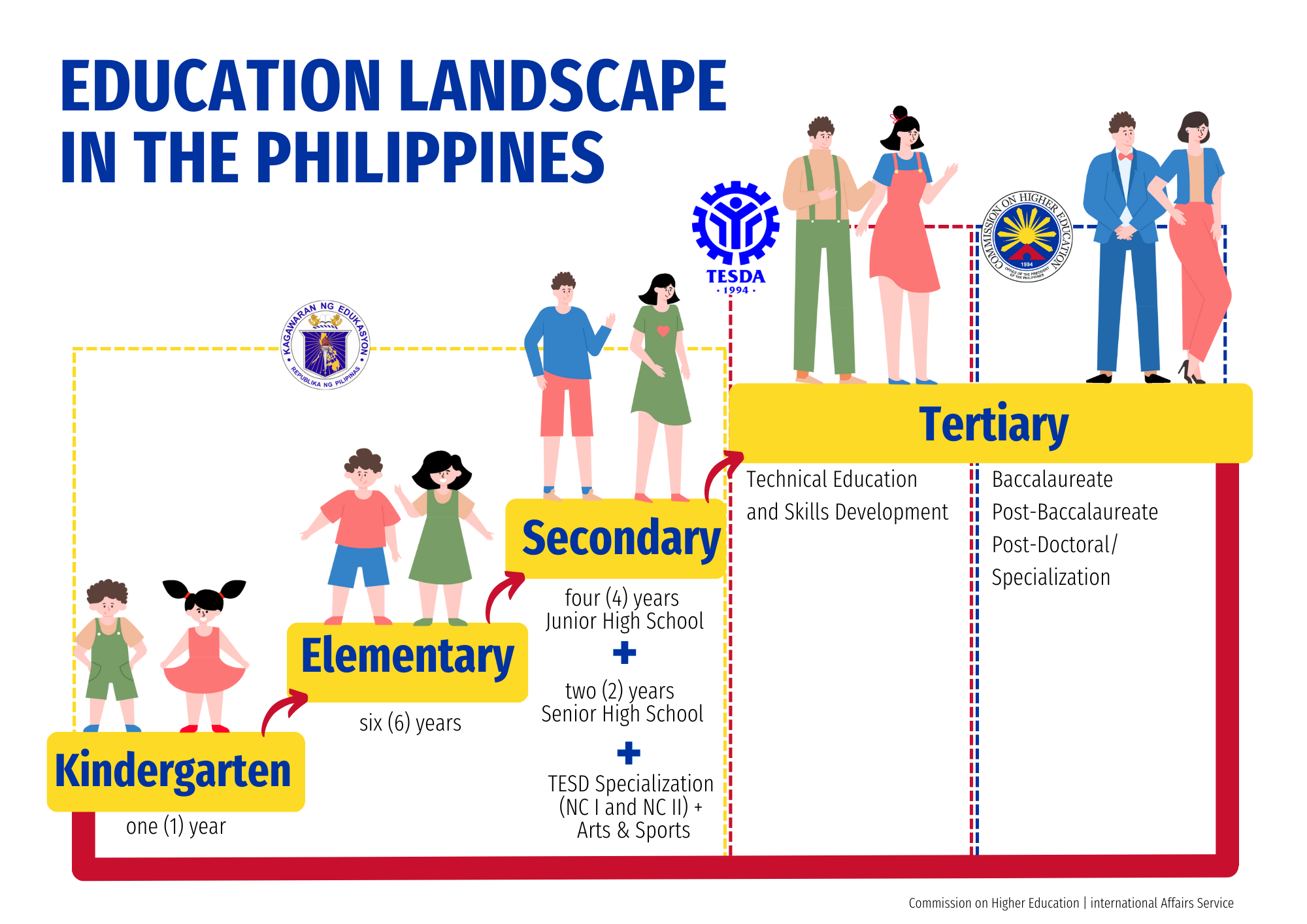iEducation Philippines
International Affairs Service | Commission on Higher Education
INCLUSION · ACCESS · SERVICE
Philippine Education System
The Philippine education system covers both formal and non-formal education. Formal education is a progression of academic schooling from elementary (grade school) to secondary (high school) and tertiary levels (TVET and higher education).
The system is tri-focalized by law into basic, technical-vocational and higher education under three different agencies: the Department of Education (DepED) headed by a Cabinet Secretary for basic education; the Technical Education and Skills Development Authority (TESDA) headed by a Director General for technical-vocational education and training; and the Commission on Higher Education (CHED) under the Office of the Philippine President headed by the Chairperson of a collegial body of five Commissioners.

The Philippine Qualifications Framework
The PQF is a system that defines levels of education and skills in the Philippines. It’s like a roadmap that shows what you can learn and achieve at different stages of your education and training.
- Sets standards: It ensures that everyone has the same understanding of what knowledge and skills are expected at each level.
- Recognizes qualifications: It gives official recognition to the skills you’ve gained, whether through formal education, training, or experience.
- Creates pathways: It helps you move between different education and training programs, and between education and the job market.
- Increases mobility: It makes it easier for you to work in other countries, as your qualifications are recognized internationally.
- It’s a quality-assured system, meaning it’s reliable and trustworthy.
- It’s based on learning outcomes, not just years of study.
- It applies to everyone, from students and workers to professionals.
- It’s a collaboration between different government agencies.